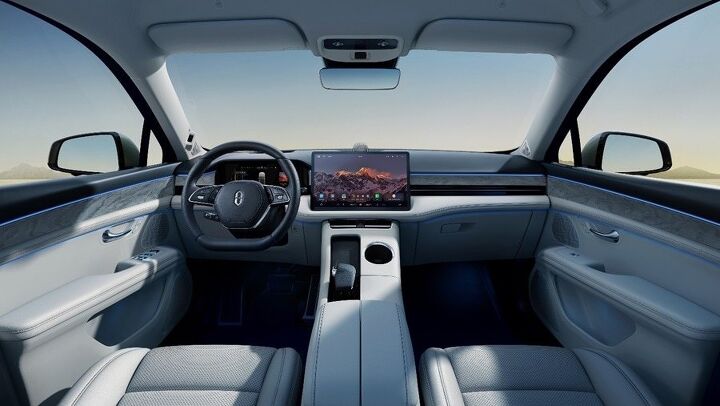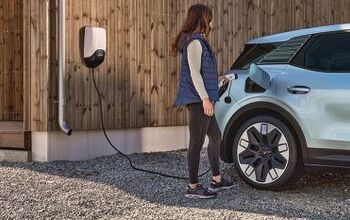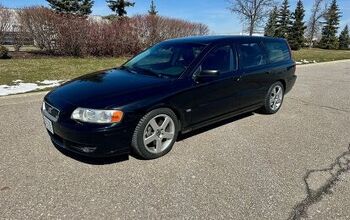China's Huawei Establishes ‘Smart Car’ Unit With Changan Auto

Huawei has announced it will continue becoming intertwined with the automotive sector after signing onto a joint venture with Chinese state-owned carmaker Changan Automobile. The telecommunications giant has established Shenzhen Yinwang Intelligent Technology with a registered capital of 1 billion yuan ($140 million USD) and a focus on smart car equipment manufacturing, artificial intelligence system integration services, and AI software development.
According to the South China Morning Post, the new unit is wholly owned by Huawei and will be used to help transfer technology between the phone company and Changan Auto. The telecom firm previously said that the plan would be to “integrate the core technologies and resources of [Huawei’s] smart car solutions into the new company.”
The firm declined to comment on the relationship between the new entity and the agreement it signed with Changan in November.
From the South China Morning Post:
In November, Richard Yu Chengdong, CEO of Huawei’s consumer business group and chairman of its Intelligent Automotive Solution business unit, called on Chinese carmakers Seres Group, Chery Automobile, JAC Motors and BAIC Motor to take an equity stake in the Huawei-Changan JV.
All four of these companies — generally considered smaller carmakers in the country — currently partner with Huawei to develop and sell new brands under the so-called Huawei Select model, through which the smartphone giant collaborates closely with companies on everything from product design to sales. These brands include Aito with Seres and Luxeed with Chery.
While this arrangement yields roughly the same level of importance as if Microsoft or Apple had a joint partnership to develop automotive tech, it has to be said that the outlet is known for over-hyping regional businesses and effectively serves as propaganda for the Chinese government. However, one could make similar arguments about select Western outlets and bias certainly doesn’t mean the reporting defaults as false. Still, particular attention should always be given to framing of any article.
Huawei has been getting involved with loads of industries in a bid to see its technology become the foundation of smart devices that leverage connectivity to monopolize user data, create new revenue streams, and provide additional opportunities for government surveillance. We’ve seen something similar taking place in Western markets as “smart devices” became commonplace and automotive connectivity was standardized. But Huawei has been sanctioned by the United States, meaning whatever tech it develops for cars likely won’t be making it to our shores.
Changan has also said that the telecom giant had promised not to manufacture cars on its own while the joint venture was in effect. Most of the work will be focused on developing new cockpits using novel interfaces (likely touch screens and augmented reality displays) that take into account artificial intelligence and voice command. The duo are reportedly still in discussions as to exactly what that entails. But they’re already making room for other automakers to jump aboard the program — which is currently using the working title “Newcool.”
With the Chinese government encouraging all automakers to get under the umbrella, they’re effectively obligated to jump aboard the program. A large portion of domestic brands already have working partnerships with Huawei and there seems to be a state-backed push for that trend to continue.
[Image: Huawei]
Become a TTAC insider. Get the latest news, features, TTAC takes, and everything else that gets to the truth about cars first by subscribing to our newsletter.

A staunch consumer advocate tracking industry trends and regulation. Before joining TTAC, Matt spent a decade working for marketing and research firms based in NYC. Clients included several of the world’s largest automakers, global tire brands, and aftermarket part suppliers. Dissatisfied with the corporate world and resentful of having to wear suits everyday, he pivoted to writing about cars. Since then, that man has become an ardent supporter of the right-to-repair movement, been interviewed on the auto industry by national radio broadcasts, driven more rental cars than anyone ever should, participated in amateur rallying events, and received the requisite minimum training as sanctioned by the SCCA. Handy with a wrench, Matt grew up surrounded by Detroit auto workers and managed to get a pizza delivery job before he was legally eligible. He later found himself driving box trucks through Manhattan, guaranteeing future sympathy for actual truckers. He continues to conduct research pertaining to the automotive sector as an independent contractor and has since moved back to his native Michigan, closer to where the cars are born. A contrarian, Matt claims to prefer understeer — stating that front and all-wheel drive vehicles cater best to his driving style.
More by Matt Posky
Latest Car Reviews
Read moreLatest Product Reviews
Read moreRecent Comments
- SCE to AUX Agree 100%.
- Macca To me it seems like the current EV conundrum is at least partially driven by a standoff between the manufacturer and the consumer, complicated by regulations (and the laws of physics). There is an identity crisis as to the ideal EV. To some, it is a decidedly non-luxury city-friendly compact that isn’t intended for long highway trips – these have struggled to consistently find buyers in the US. To others, they’re still mostly viewed as a luxury toy – perhaps their ideal is a $250k luxury sedan with 1,234 HP that can blast to 60 MPH in 1.9 seconds, or even a 8,600 lb SUV. We see more excitement toward the latter end of the spectrum – with such examples occupying the same spot as the ultra-lux/sports/’fun’ car of yesteryear. To me, EVs make more sense on the humble side of the spectrum, but wealthy buyers don't want to merely eek along with the hoi polloi in a tiny EV. I don’t bemoan choice, after all, ICE runs a similar gamut from the Mirage to the Chiron. It does appear, though, that the would-be Leaf-class buyer continues to be alienated (a group admittedly middling in number). Those considering a $29k Leaf seem to either find an efficient ICE/hybrid (perhaps a $24k Corolla Hybrid or $28k Camry Hybrid) -or- they have the funds to move up to a newer platform/larger/more powerful/greater range EV in a higher price bracket. A Leaf in the driveway, after all, doesn’t stoke envy – to most folks it looks like a Versa hatch – at best you might get a hug from a polar bear. Some of the legacy automakers drawing the deepest line in the sand on ending ICE (Jaguar, for example) are already extreme niche marques struggling to maintain a brand identity (and to move metal). If your aging lineup is already a toy/luxury purchase and sales are floundering, why not attempt a rebirth to cater to the high-end EV buyer? Folks are lined up none-deep to buy the $73k I-Pace – so is there a budding Jaguar-EV owner base? There seems to be a bit of survivorship bias in that some manufacturers see ‘strong’ sales in the upper-5-figure $$ register of EVs and think that’s the heart of the market. Instead, it seems that the still-exotic nature of EVs skews EV-intending consumers to higher tax brackets (and thusly higher-end EVs). Tesla has seemingly pulled off an established, diverse lineup with some 'affordable' models. Hyundai has made decent sales with the Ioniq 5The Big [s]Three[/s] Two are struggling with brand identity and approach (as usual). EVs aren’t mainstream enough to acquire the economy buyer at scale (yet?) so I would, as others have said, take a MOR approach with hybrids like Toyota and let other mfg's step on the rake. Rumors of ICE's death are greatly exaggerated.
- Rover Sig The list of reasons why EVs are not good for much - except golf carts and urban delivery vehicles/short range commuter cars - is lengthy and compelling. And the electrical grid - in many areas still dependent on coal - won't be able to support them. I remembers when the example from enlightened Europe was "go diesel" and American car builders tried that on us. Today, diesel is dead for private automobiles, and the hysteria has moved on to EVs. Better, cheaper fuels await the day the government regulators allow the market to operate freely and give up on telling us what to drive.
- Redapple2 Fine cars, I m sure. I ll take a 911.
- Ajla I have an acquaintance that inherited one of these when his father passed away. It's a 390 and quite original but also needs some TLC.Despite me and my pals being capable folks he refuses to let us work on it, even with free labor involved. So it just sits under a tarp in his garage slowly rotting away and eventually some chucklef*ck will get a "barn find" after he dies himself.


































Comments
Join the conversation
Coming to your 15 Minute City soon.